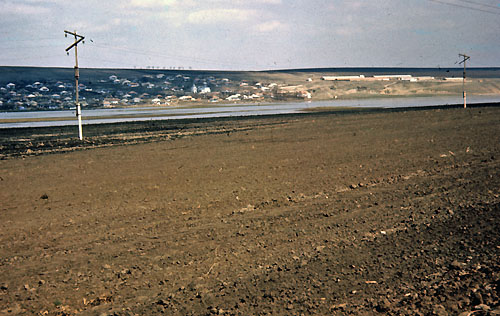The Western Ukraine is generally considered to be the area west of Kiev (west of the Dnieper River), especially the area west of Zhytomyr.


This is a very complicated region from the point-of-view of linguistics (Polish, Ukrainian, German, Yiddish, etc.), ethnicity (Polish, Ukrainian, German, Jewish), religion (Roman Catholic, Greek Orthodox, Jewish) and historical antecedents. At one time or another these lands were controlled by Poland, Austria and Russia--and at some times divided up among these three countries. It is also a region that contains the ill-defined area of Galicia (Галичина, Galicja, Галиция, Galizien), and it is an area sometimes referred to as Right-Bank Ukraine, referring to the lands on the right (western) bank of the Dnieper River. The city of Lviv (Ukrainian: Львів, L’viv; Polish: Lwów; German: Lemberg; Russian: Львов, L'vov) reflects the complexity of the region.
Way back in the seventeenth century, the "Left-bank Ukraine" with the city of Kiev was incorporated into medieval Muscovy, while "Right-bank Ukraine" remained part of the Polish-Lithuanian Commonwealth. In 1793 the "Right-bank Ukraine" was annexed by Russia as part of the Second Partition of Poland.

The village of Ray in Western Ukraine
The Western Ukraine is bounded toward the southwest by the Carpathian Mountains which kind of run east-west before curving south through Romania. Technically, they are not a single mountain chain; they are also not very high (only 7,500 ft. in some places). They are not covered in snow year round. From the Carpathians, the Western Ukraine extends eastward through rolling hills and then in an ever flatter monotony--part of the Black Earth region.


Moldova is to the south of the Western Ukraine and is part of the Black Earth region.